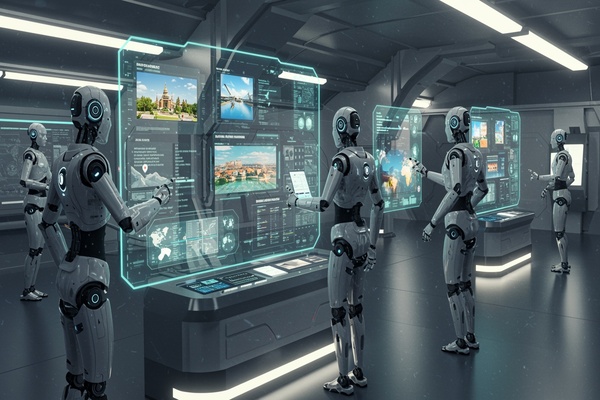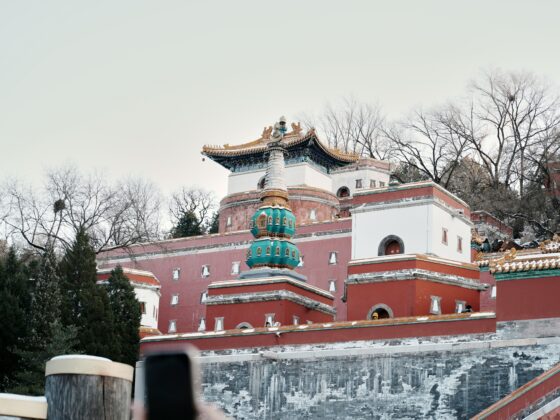
The hotel industry is stuck in a déjà vu loop. For the past decade, brands have fought to reclaim direct bookings on brand.com, deploying loyalty programs, enforcing rate parity and tightening marketing funnels. Meanwhile, online travel agencies (OTAs) have quietly shifted the battlefield.
They’re no longer obsessed with winning web clicks. They’re embedding themselves into the financial and operational bloodstream of travel—orchestrating air, hotel, payments and loyalty in a single ecosystem. Expedia’s B2B engine alone now drives more than $25 billion annually, powering bookings not just on Expedia. com, but through partners like United Airlines, Delta and even Walmart Plus Travel. Booking Holdings is expanding into fintech and alternative accommodations at scale. Airbnb has become a cultural verb.
If the first OTA wave decimated hotel margins, this next one is more insidious. It’s not about price wars; it’s about erasing brand equity itself. The real product isn’t a flag, a building or a points program; the product is the room, the experience and the human connection to the local community.
Right now, OTAs are building the connective tissue of the travel journey, while hotels risk being reduced to commoditized inventory with no meaningful identity.
WHERE THE HOTEL INDUSTRY STANDS TODAY
• OTAs are evolving faster than hotels. Expedia’s B2B business now represents nearly a third of its gross bookings, with deep integrations into airlines, retail and corporate travel. These partnerships give OTAs control of the end-to-end journey, long before a hotel ever sees a guest.
• Hotels are still fighting yesterday’s war. Loyalty apps, direct-booking campaigns and rate-parity enforcement were effective a decade ago, but they do little to address how AI and new digital surfaces are reshaping trip discovery and purchase decisions.
• Guests are defecting to new platforms. AI-native tools, such as ChatGPT, Gemini and Perplexity, are quickly becoming the first stop for travel planning. Guests aren’t loyal to brands anymore; they’re loyal to experiences they can curate on demand.
The shift is fundamental: search-and shop is collapsing into conversational discovery. Travel, which has become transactional and exhausting, is becoming intuitive and fun again. But this new flow is owned by the platforms, not the brands.
THE GUEST AS THE NEW DISTRIBUTION CHANNEL
In the AI era, loyalty isn’t centralized in a brand’s app. It’s decentralized and guest-controlled. Travelers increasingly own their personal data, curate their journeys and assemble pieces—flights, hotels, events, activities—from multiple providers and in real time.
Hotels have historically depended on controlling the booking funnel—that’s over. In an AI-driven world, the guest becomes the platform. They’ll ask an AI: “Plan me a three-night trip to Austin with boutique stays, live music and rooftop cocktails under $400 a night.” If your property isn’t available in that invisible, conversational shelf space, you simply don’t exist.
To thrive, hotels must stop playing defense with brand.com. Instead, they need to embrace agentic hotel distribution, an infrastructure-level shift that makes availability, pricing, inventory and loyalty portable across any AI-native surface. To break free from the OTAs, hoteliers must engage in three simple but powerful actions: Retain, Reclaim, Reinforce.
- Retain: Capture every conversion signal: guest conversations, intent data, booking triggers and preferences. Stop losing journey-defining data to intermediaries.
- Reclaim: Make ARI (availability, rates, inventory) portable and independent of OTA pipes or search engine pay-to-play. Push content, pricing and perks directly into AI-native booking flows.
- Reinforce: Protect profitability by keeping loyalty and lifetime value inside your own ecosystem rather than feeding OTA-led fintech programs that quietly siphon margin.
Agentic hotel distribution isn’t another marketing campaign or chatbot; it’s an infrastructure revolution. Hotels need the following capabilities to compete in an AI-driven marketplace:
• Model Context Protocol (MCP): A data orchestration layer that makes hotel content portable and accessible across emerging AI-powered channels.
• Conversion Intelligence Engine: Real time scoring of guest intent to optimize routing and maximize direct conversion.
• Agentic Booking Lifecycle Engine: Full lifecycle automation, from inspiration to booking to cancellations, without relying on third-party intermediaries.
• Integration Hub: Middleware to unify CRS, PMS, POS, loyalty and payment systems into seamless AI workflows.
Consider this: the average guest hits more than 40 digital touchpoints before making a booking. Owning and understanding that journey—not just reducing cost of acquisition—is the new competitive advantage.
STOP THINKING ABOUT BRAND.COM FIRST
The next wave of OTA disruption won’t be loud. It won’t announce itself with billboard wars or commission hikes. It will quietly strip away brand value until a hotel’s flag matters as little as the logo on a commodity shipping container.
Hotels can’t outspend OTAs on marketing and they can’t out-innovate tech giants on AI. But they can own their product—the guest journey itself—by making it agentic, portable and future proof.
It’s time for hospitality to stop defending the past and start building the future. The brands that survive will be those that break free from legacy distribution, embed themselves into the AI travel stack and become indispensable to the guest’s curated journey.
Story contributed by Brad Bewer, chief AI officer, Agentic Hospitality.








